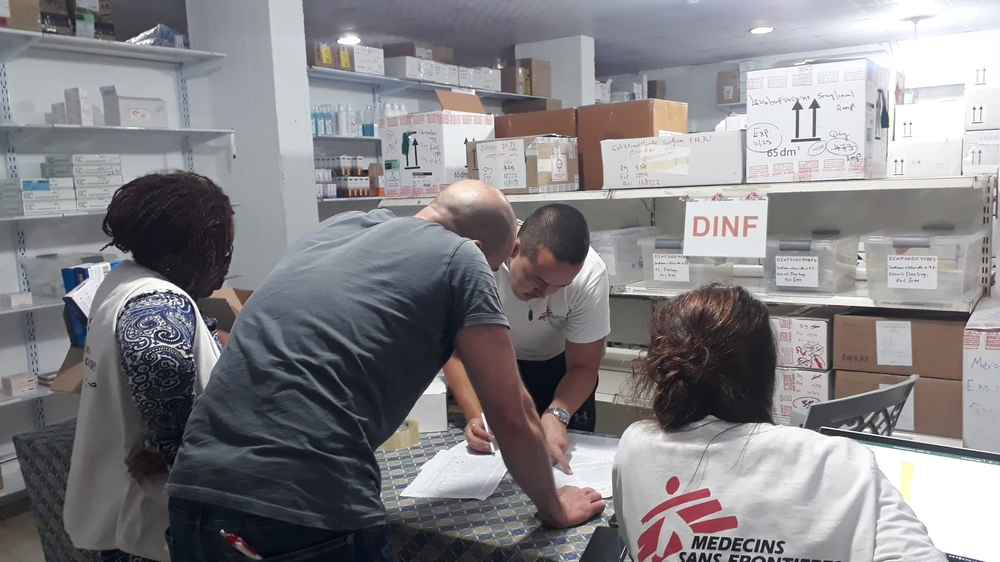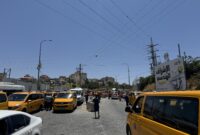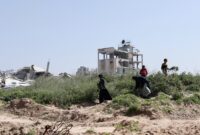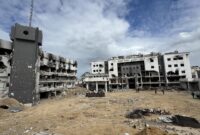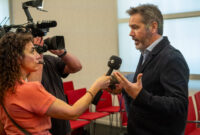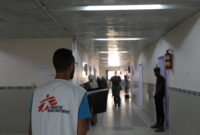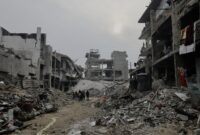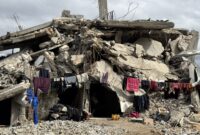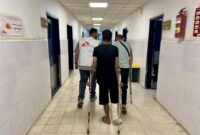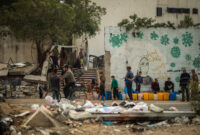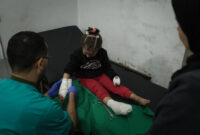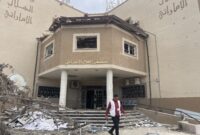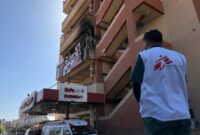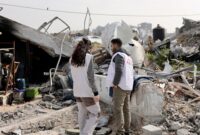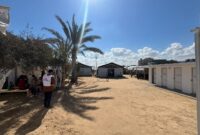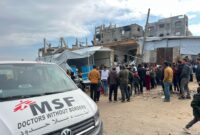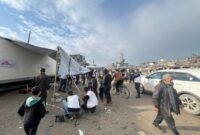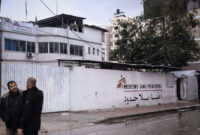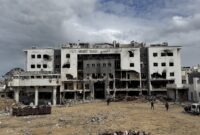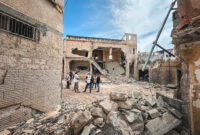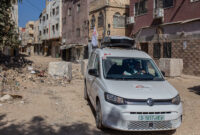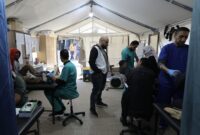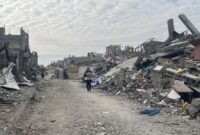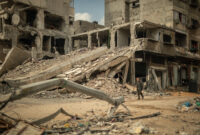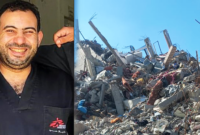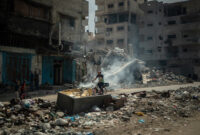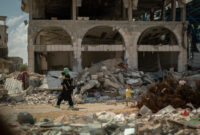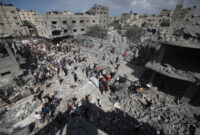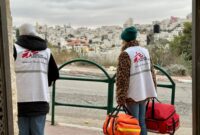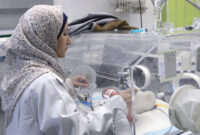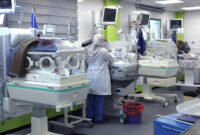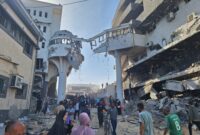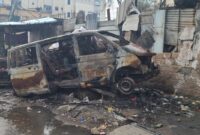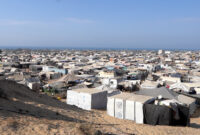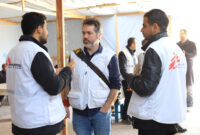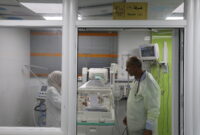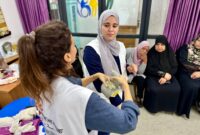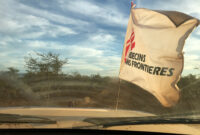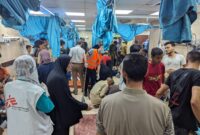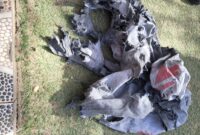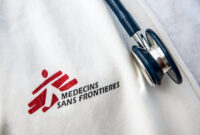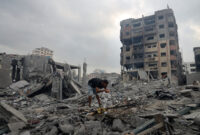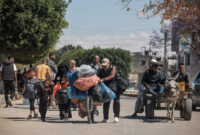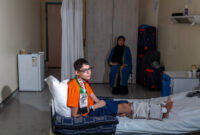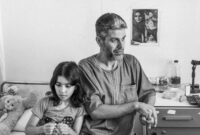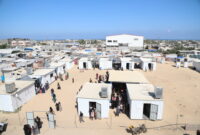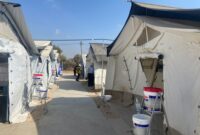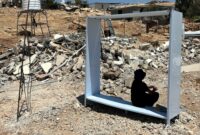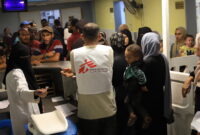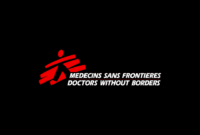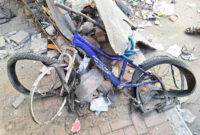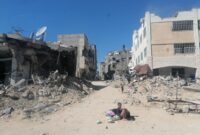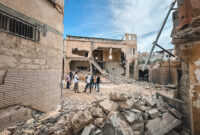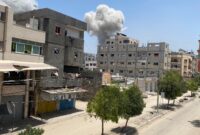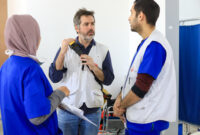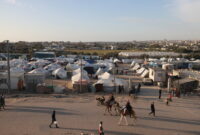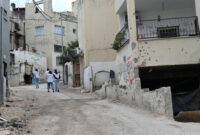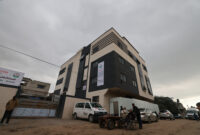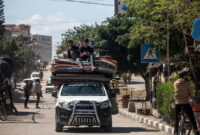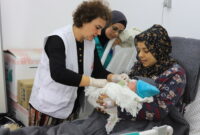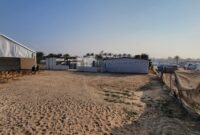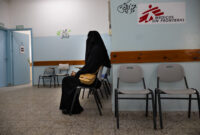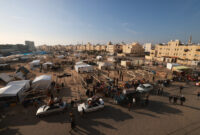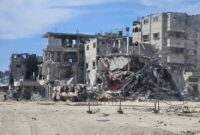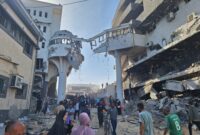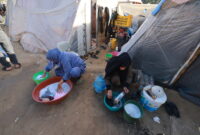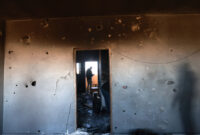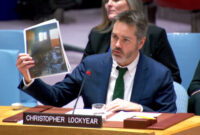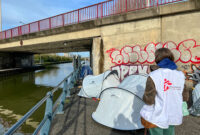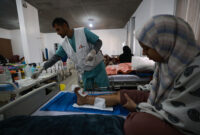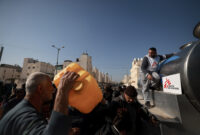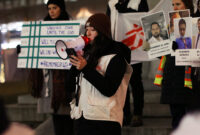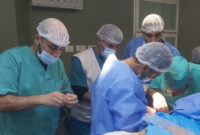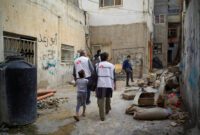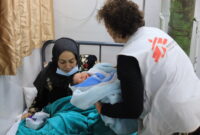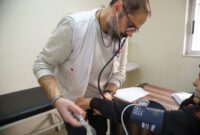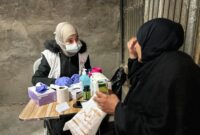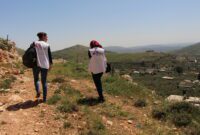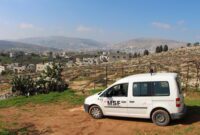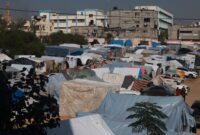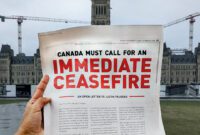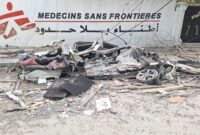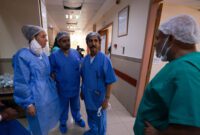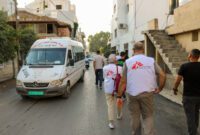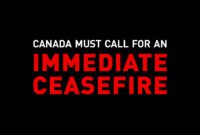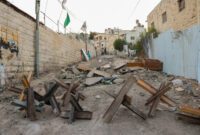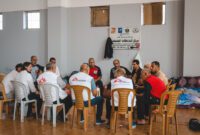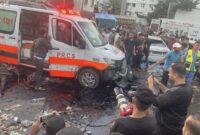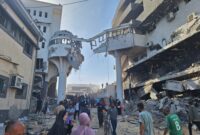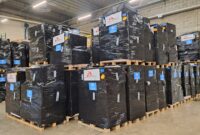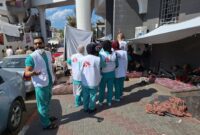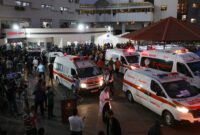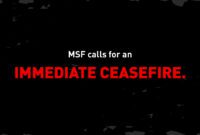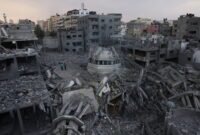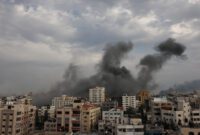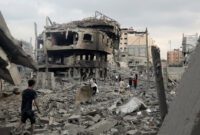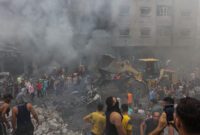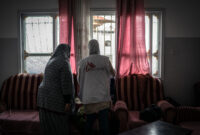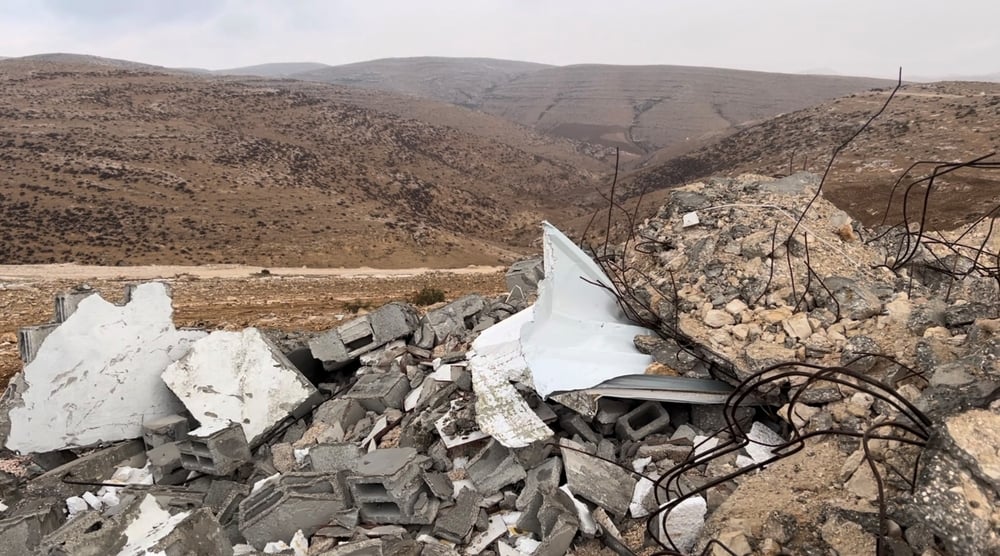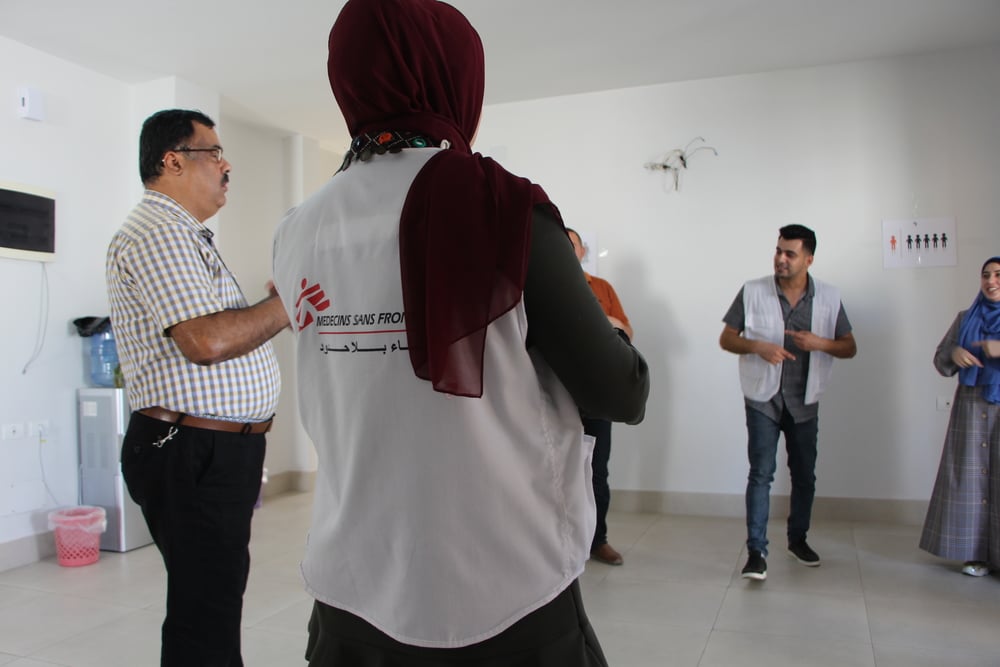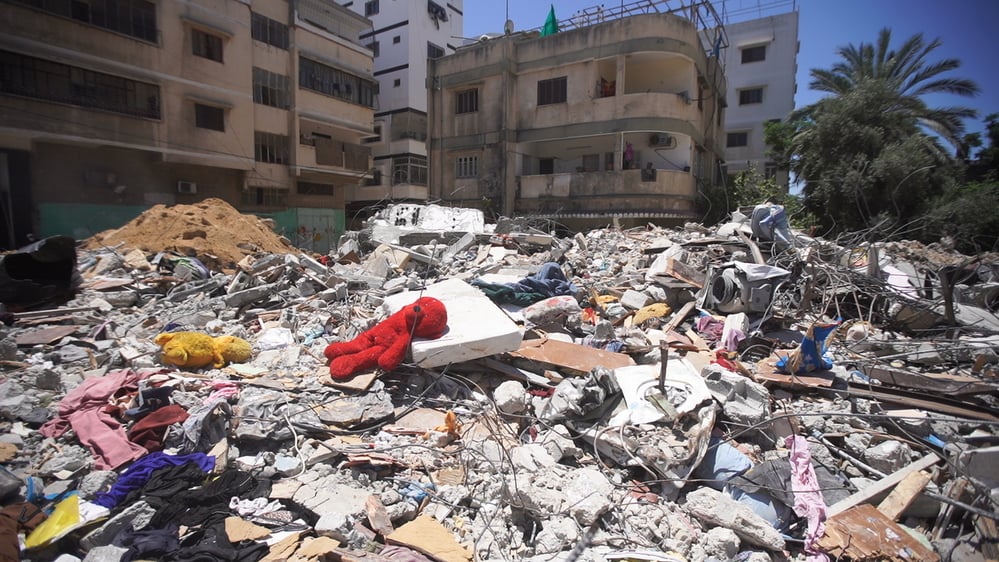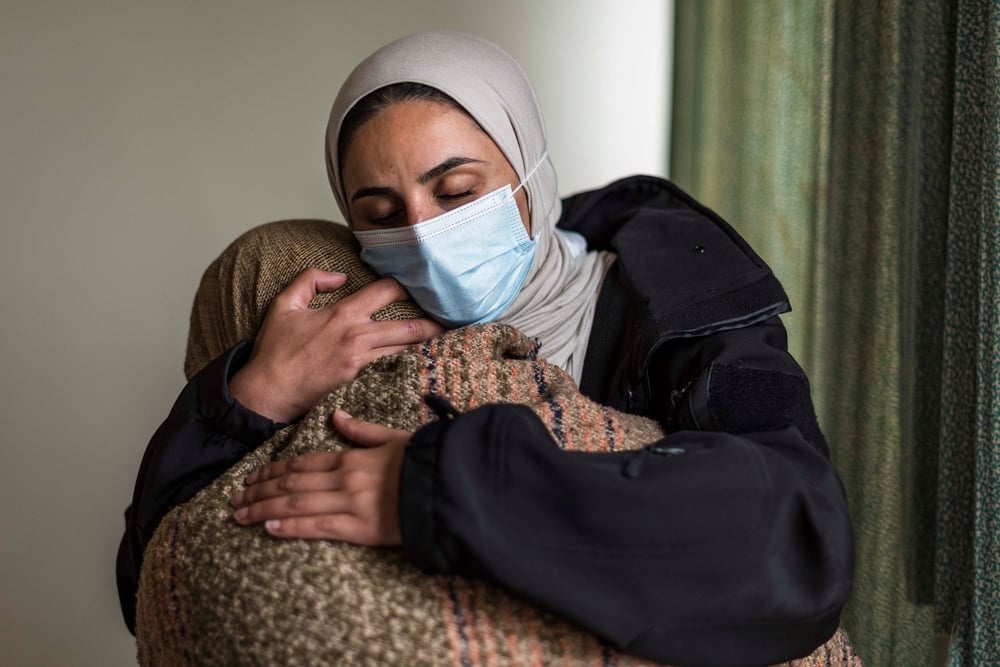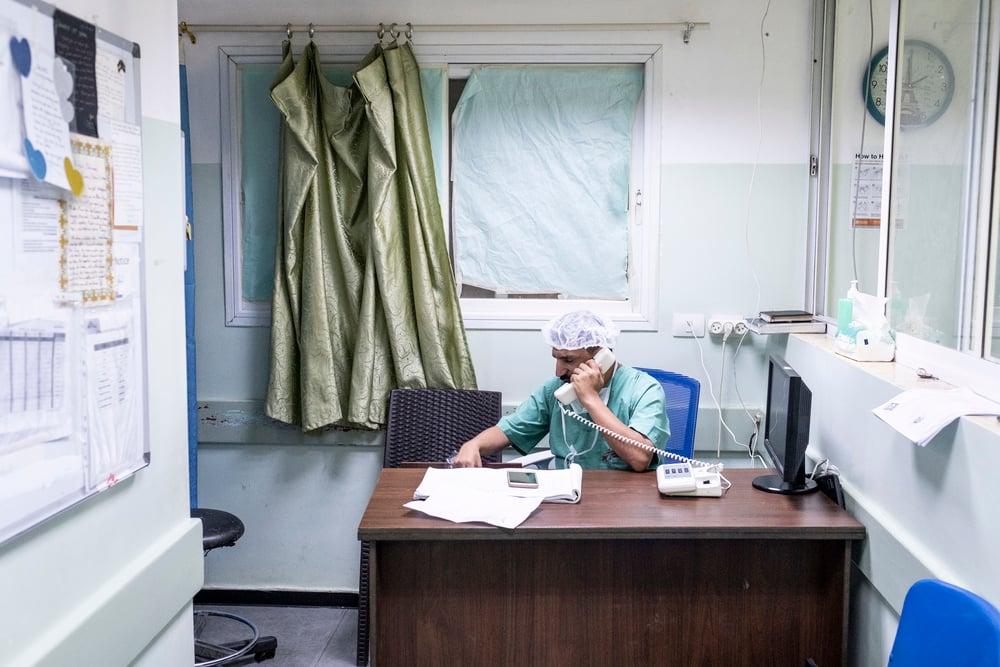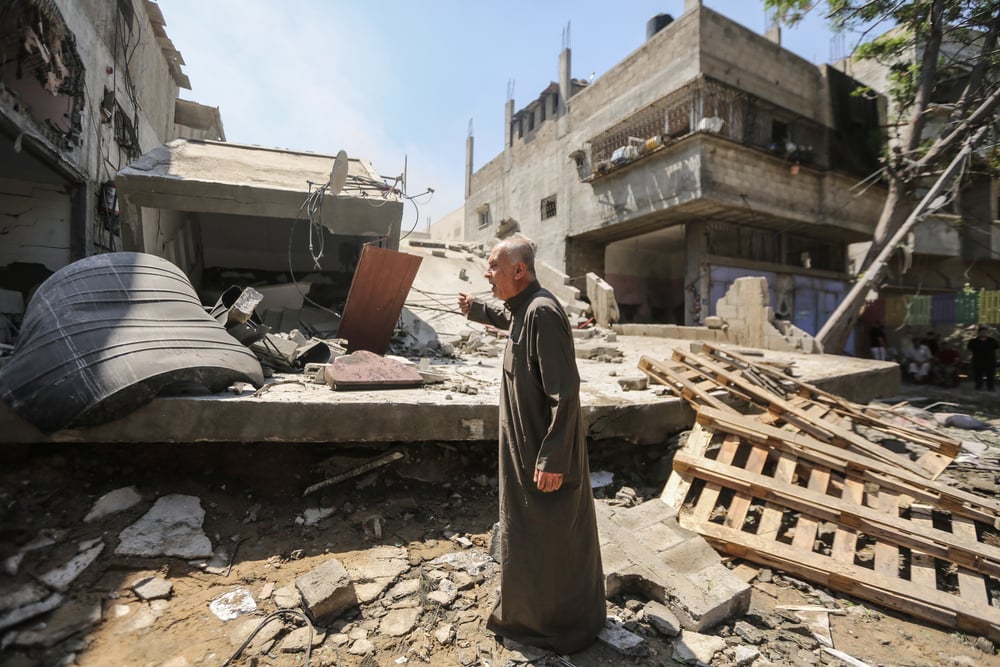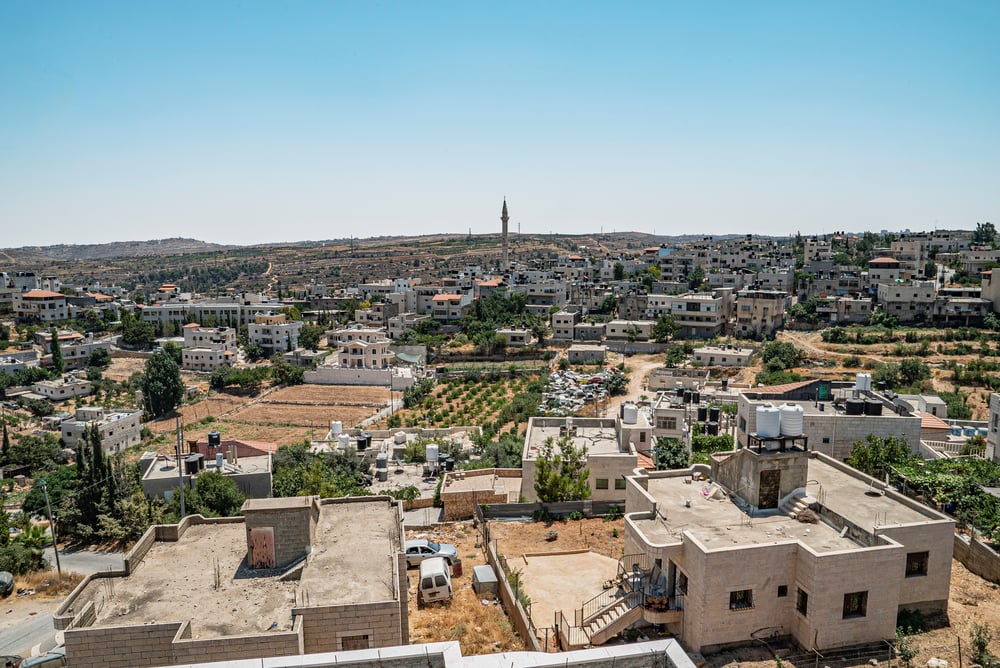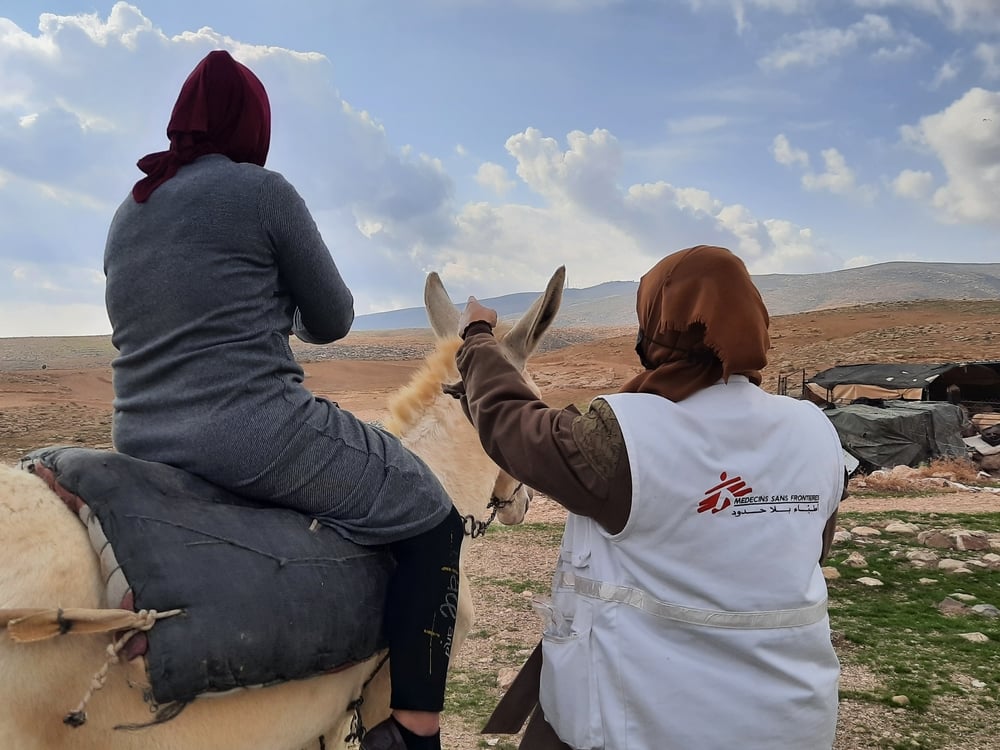Gaza: MSF provides medical care and donates supplies amidst conflict
Doctors Without Borders/Médecins Sans Frontières (MSF) is donating medical supplies to hospitals and health facilities in Gaza to respond to medical needs in the midst of the conflict that began yesterday.
“Health facilities need this equipment because of the many injured patients,” said Ayman Al-Djaroucha, MSF deputy coordinator in Gaza. “Hospitals are overcrowded with injured people, there is a shortage of drugs and consumables and a shortage of fuel for generators.”
One challenge medical staff face in Gaza at the moment is the lack of a safe option to move patients to health facilities. “Ambulances can’t be used right now because they’re being hit by airstrikes,” said Darwin Diaz, medical coordinator for MSF in Gaza.
MSF asks all parties to respect the sanctity of medical facilities, vehicles and personnel.
Our teams have been providing surgical and inpatient care in Al-Awda hospital since yesterday, in the enclave’s north. Our bed capacity there was upgraded to its maximum of 26 beds in preparation for a high influx of expected patients.
“Stable patients are referred to us and we take care of them,” said Jean Pierre, MSF medical activity manager in Gaza. “It’s all been gunshots wounds and injuries from shrapnel, spread at random on the upper and lower limbs.”
Authorities reported over 2,200 injuries and over 300 deaths including 20 children in Gaza at the moment. In Israel, over 600 have died and over 2,000 are reported injured at the moment.
About MSF in Palestine
The information about our response, below, is correct as of Nov. 9, 2023.
MSF activities in Gaza are currently very limited. We have extreme difficulties delivering aid and providing healthcare due to the insecurity and the unpredictability of the bombardments. While some of our colleagues decided to move south following the unacceptable evacuation order of north Gaza, some of our other colleagues have remained in northern Gaza and continue to support in lifesaving activities in Al Shifa Hospital as well in Al Nasser hospital in the south. In Al Awda hospital, a team of seven MSF staff is also working in the MSF inpatient department.
We are also supporting local health authorities with donations from our medical stock. Due to the huge and uninterrupted influx of wounded people since the beginning of the current active conflict, Al Shifa Hospital, the main surgical facility in the Gaza strip, was on the brink of a complete shortage of essential medicines. In response, we recently were finally able to make a large donation of medical stock, including medicines and medical equipment to Al Shifa hospital.
Our staff are working hard on preparing medical and humanitarian supplies to be sent to Gaza when safe access will be guaranteed and open, and we’ll send in emergency teams if and when we’re able to.
MSF is committed to supporting the people affected by the Israeli heavy bombardments and indiscriminate attacks on Gaza. We stand in solidarity with healthcare workers and patients in Gaza. We want to be able to access people in need of medical care and offer lifesaving humanitarian services, but to do this we need basic guarantees of safety.
The West Bank
MSF’s medical and humanitarian activities in the West Bank have been affected by the escalation of violence and the reinforced movement restrictions that have limited people’s access to essential services, including healthcare. To adapt to the situation, MSF medical teams are providing phone consultations for Palestinian residents and displaced people, and referring patients for medical treatment, mental healthcare and social services. MSF mental health teams are also providing psychological first aid, counselling and psychotherapy, mostly remotely. In the West Bank city of Nablus, MSF teams are continuing to provide local people with mental healthcare.
MSF has donated medical supplies, including surgical kits, to Ahli hospital in Hebron, and first aid kits to community focal points in Beit Ummar, Al-Rashaydeh and to the emergency care centre in Um Al-Khair; and provided support including training for staff in Al Mohtaseb Hospital located in Hebron old city. MSF continues to assess the situation in hospitals across the West Bank.
